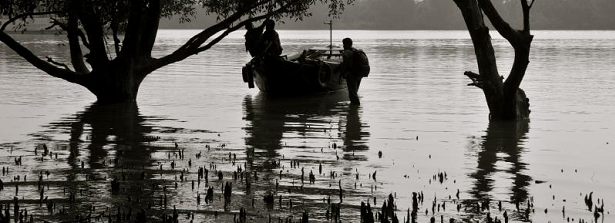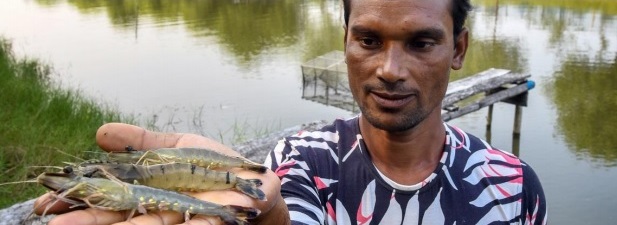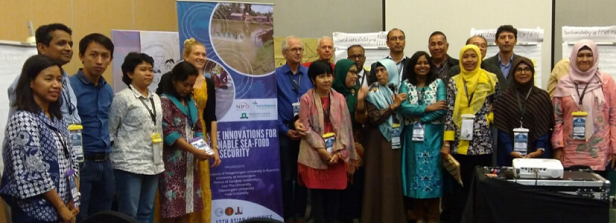Bangladesh Mangrove Polders for Shrimp Aquatic Productivity

Duration: 01 August 2017 to 31 July 2020
Project information
Aim: The polders in the Ganges-Brahmaputra delta were constructed for rice cultivation but due to salinization caused by sea-level rise and climate change impact, rice is progressively replaced by shrimp. Mangroves enhance coastal protection, biodiversity and aquaculture productivity. This project supports the option of enhancing shrimp cultivation using mangroves. The aim of this project “Selection of mangrove species to optimize aquaculture based livelihoods and biodiversity in climate smart designed polders of Bangladesh (Mangrove-Polders)” is to deal with shrimp culture using suitable mangrove species as an alternative development strategy in polders where rice is no longer viable.
Objectives: The objective of this project is to introduce sustainable agriculture innovative for integrated water management in the polders of Bangladesh. Together with the introduction of the plantation of mangroves the goal is to restore local resilient livelihoods, contributing to food security, and various eco-system services in the context of poverty, delta dynamics and climate change.
Method: The effect on water quality and shrimp performance will be tested to support the selection of appropriate mangrove species. The sedimentation, as well as survival and growth of the mangroves and shrimp species will be monitored, and the overall effect will be analysed through modelling. Through a participatory approach, farmers involved in Solidaridad’s SaFal program will contribute to co-designing and evaluating the various interventions.
Country: Bangladesh.
Dutch policy goals: Creating ecologically sustainable food systems; Bangladesh: food-climate-water-ecosystem nexus.
Progress reports
Year 1: The overall objective of the Mangrove-Polders research project is to restore resilient livelihoods through integrated mangrove-shrimp farming, which is expected to contribute to food security and ecosystem services in the context of poverty, delta dynamics and climate change. The immediate objective is to test two designs for integrated mangrove shrimp farming. In order to achieve this objective, the project selected Debhata of Satkhira district and Paikgacha of Khulna district as project area. Four mangrove species, namely, Sonneratia apetala, Avicennia officinalis, Bruguiera sexangula and Heritieria fomes were selected under the project through literature survey, focus group discussions on a short list of species, and availability. In Debhata, 12 shrimp ponds were re-designed and mangroves were planted with four different combinations along the dikes for on-field experiment. In Paikgacha, a primary canal has been selected for re-designing the dikes and raising mangrove plantations.


